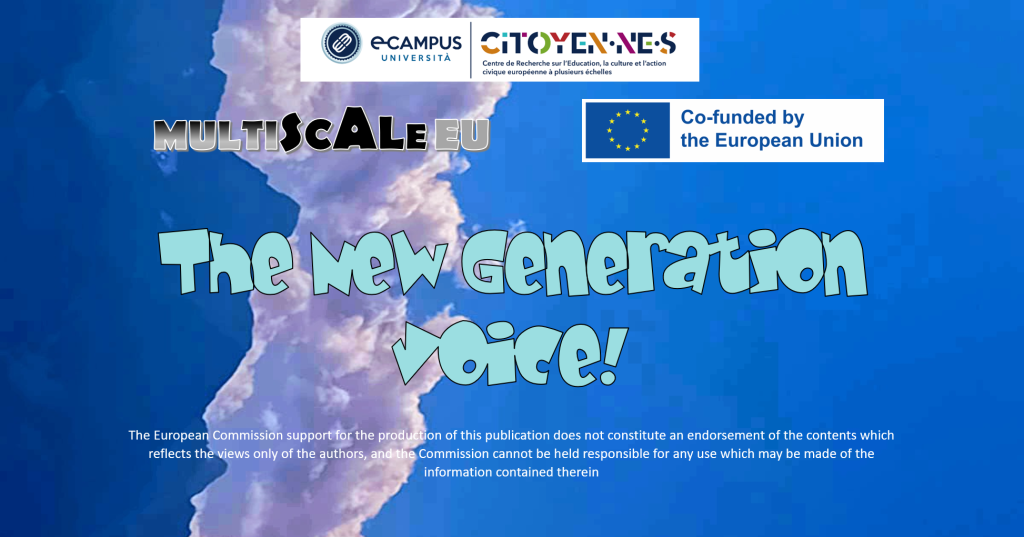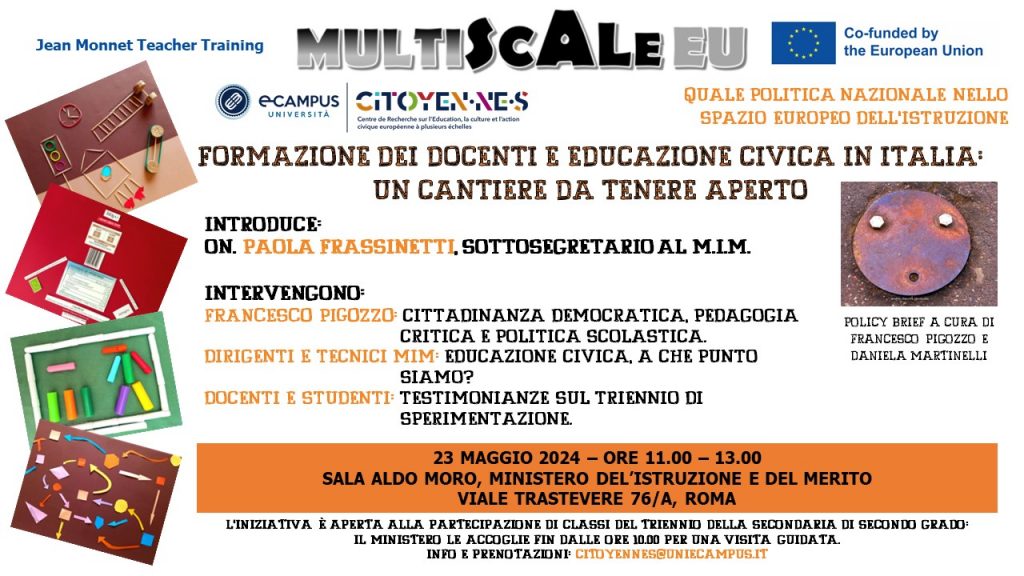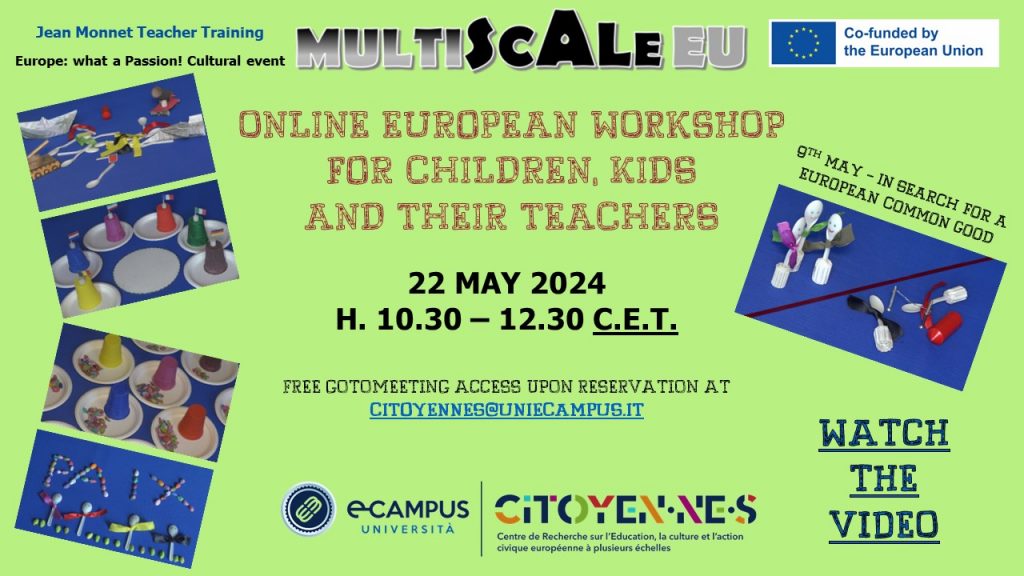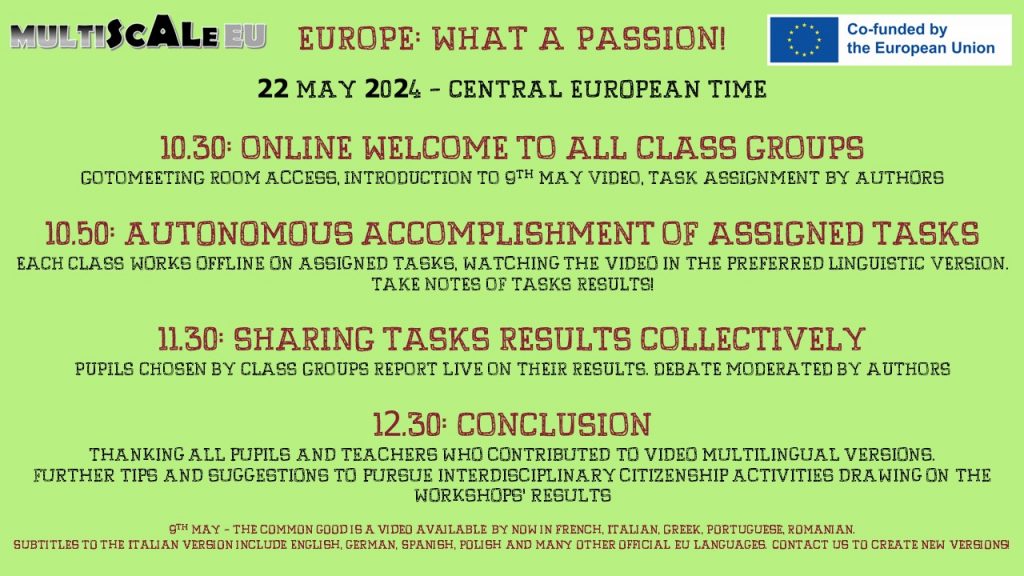What is the knowledge and what are the abilities teachers need to increase, whatever their school level and subject matter taught, in order to upscale and to enhance their personal contribution to grow up democratic citizens?
How to more effectively train teachers who want to maximize their educational results in terms of critical and democratic citizenship empowerment?
These fundamental questions lay behind the “Multiscale EU” research and action, co-funded by the European Union as a Jean Monnet Teachers’ Training project. But they also nourish, and will continue to, a long-term scientific and ethical commitment whose scope goes well beyond specific project frameworks and aims at revitalizing critical pedagogical approaches.
Our many-folded experiences over the last 20 years, with tens of thousands of pupils/students and with thousands of teachers/school directors from many EU countries, allow (and, in a way, compel) us to advance at least part of the possible answers to those questions. Yet we are convinced answers to collective issues must always be co-developed by those who find they agree on the very existence and the definition of what the issues are, and share a similar impulsion to tackle them.
This is why we publish here a call for paper and participation to a European academic seminar focused on the questions above, that will take place online – via a GoToMeeting room – the next November 30, 2024. We promote this initiative in the framework of the “Multiscale EU” project.
We invite Faculty members in Pedagogy and Education departments, scholars, researchers, doctoral and post-doctoral fellows but also educational actors across all levels and fields to join and enrich the discussion about one or both of the specific topics we drew from our framework research questions, namely:
1. A cross-national training progamme for European teachers in citizenship pedagogy from a critical democratic perspective. Contributions may (for example, but not exclusively) deal with: reporting or reflecting on field experiences already carried out or in progress, prospective vs in-service teachers needs, curriculum design and learning objectives, didactic methodologies, trans-national hurdles and opportunities in inter-university cooperation, nationally specific vs European requirements…
2. Implicit curriculum: insights for a democratic citizenship education. We welcome both theoretical and empirical, normative and descriptive contributions on inconsistencies and structural hurdles (at whatever level and in whatever field) European teachers should be aware of because they have an impact on actual school practicies and behaviours.
The seminar schedule is divided into a morning and an afternoon session, focused on the two topics respectively.
Prospective contributors are asked to submit an abstract of around 300 words as well as a short bio to citoyennes@uniecampus.it by November 10, 2024 – all EU official languages are allowed.
Presentation and discussion of individual contributions during the seminar will need to be either in English or in French, followed by the publication of an edited collection in the same languages. The deadline for final paper submission is December 10, 2024: papers should be around 5000-7000 words.




